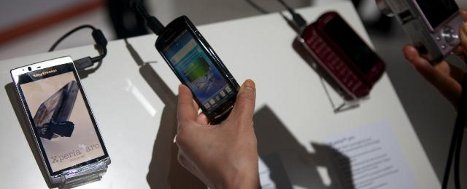Members of the European Parliament push for common charger for all mobile phones
A common charger should be developed for all mobile phones sold in the EU, to reduce waste, costs and hassle for users, said MEPs voting on an update to EU radio equipment laws on Thursday. This draft has already been informally agreed with the Council of Ministers.

A common charger should be developed for mobile phones, say MEPs.
"The modernised Radio Equipment Directive is an efficient tool to prevent interference between different radio equipment devices. I am especially pleased that we agreed on the introduction of a common charger. This serves the interests both of consumers and the environment. It will put an end to charger clutter and 51,000 tonnes of electronic waste annually", said rapporteur Barbara Weiler (S&D, DE).
The draft directive lays down harmonised rules for placing radio equipment, including cellular telephones, car-door openers and modems, on the market. The rules aim to keep pace with the growing number and variety of radio equipment devices and ensure that they do not interfere with each other while respecting essential health and safety requirements.
Common charger
MEPs called for a renewed effort to develop a common charger for certain categories of radio equipment, in particular mobile phones, because it would simplify their use and would reduce unnecessary waste and costs.
They amended the draft law to stipulate that the ability to work with common chargers will be an essential requirement for radio equipment. However, it will be up to the European Commission to decide which specific types of radio equipment will have to meet this requirement, the text adds.
Tracking unsafe radio equipment
MEPs also backed provisions in the directive that would give the authorities additional market surveillance tools to detect radio equipment products that fail to comply with the new safety rules.
Using information provided by EU member states and after thorough evaluation, the European Commission will identify those categories of equipment which will need to be registered before they can be put on the market. A similar database already operates in the US.
Next steps
The draft law was approved by 550 votes to 12, with 8 abstentions. It will still have to be formally approved by the Council. Member states will have two years to transpose the rules into their national laws and manufacturers will have an additional year to comply.
Source: European Parliament
- 370 reads
Human Rights
Ringing FOWPAL’s Peace Bell for the World:Nobel Peace Prize Laureates’ Visions and Actions

Protecting the World’s Cultural Diversity for a Sustainable Future

The Peace Bell Resonates at the 27th Eurasian Economic Summit

Declaration of World Day of the Power of Hope Endorsed by People in 158 Nations

Puppet Show I International Friendship Day 2020

